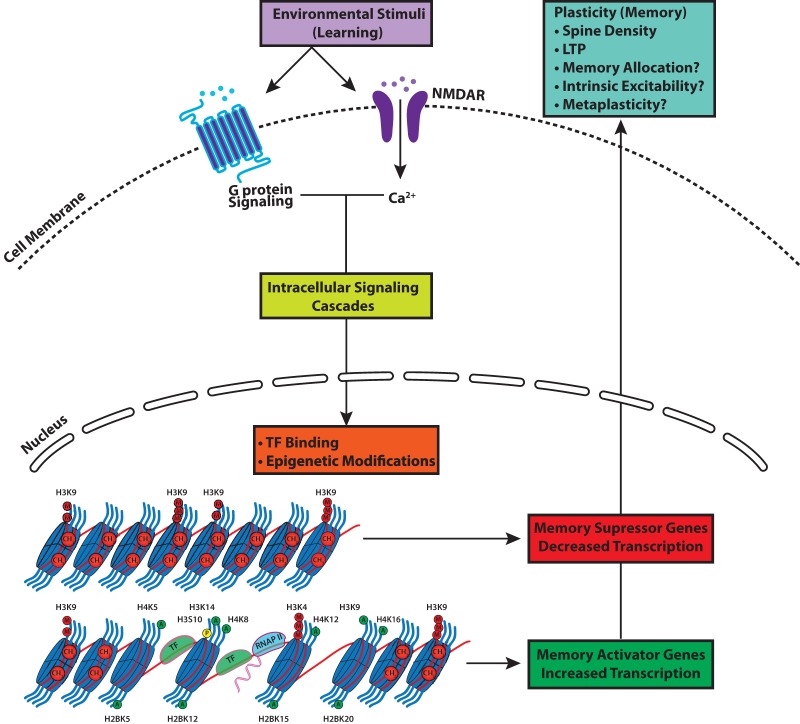Figure 2.
A model depicting the role of epigenetic mechanisms in memory formation and maintenance. Environmental stimuli, which consist primarily of associative learning tasks in animal models, initiate cellular communication by activating specific post-synaptic receptors. Receptor activation stimulates specific intracellular signaling cascades that lead to particular patterns of epigenetic modifications, which in turn regulate the access of transcription factors (TF) and RNA polymerase II (RNA P II) to gene promoters. These regulatory processes result in an increased transcription of memory activator genes and decreased transcription of memory-suppressor genes, which ultimately promote memory formation and maintenance through effects on long-term potentiation (LTP), spine density, memory allocation, cell excitability, and metaplasticity.

